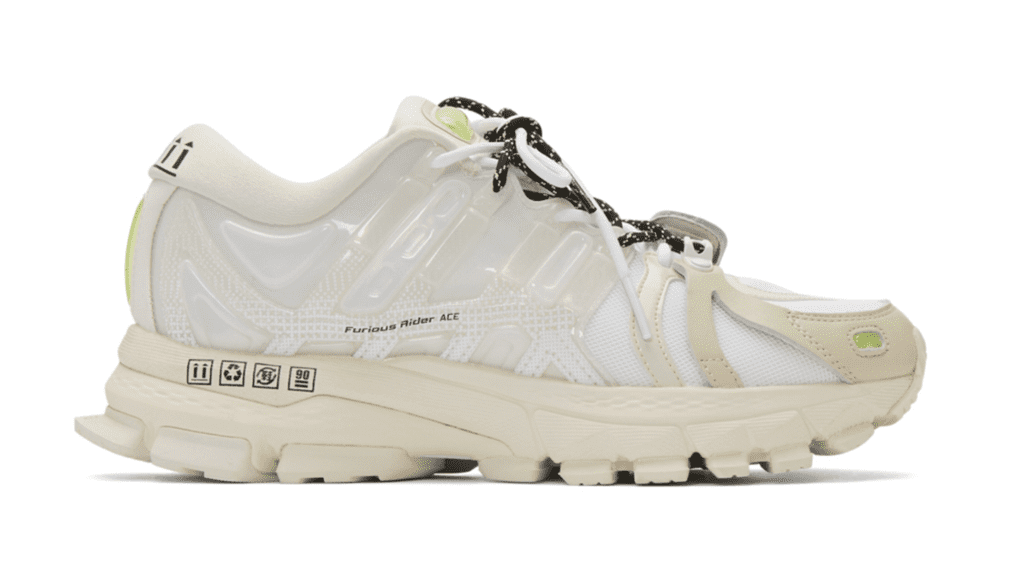Forget adidas and its impending release of new Yeezy sneakers. While you are at it, look beyond Nike, too, even if it boasts an enduring tie-up with Virgil Abloh, one of the fashion and streetwear industries’ most sought-after names. The world’s hottest sportswear brand at the moment is neither of the traditional contenders for the title. According to Bloomberg and Morgan Stanley, alike, a native Chinese company – Li-Ning Sports Goods Co., the eponymous label of former 3-time Olympic gold medal gymnast, Li Ning – is the top-growing apparel company in the world when it comes to stock market gains.
With a market value of HK$54 billion ($6.88 billion) and explosive stock market growth – the price of the company’s Hong Kong Stock Exchange-traded securities surged 200 percent so far this year, making it “the top performer in on the MSCI Asia Pacific Index and the best gainer among apparel firms globally,” per Bloomberg, Li-Ning is proving impossible to ignore.
Since its founding in 1989, Li-Ning has swiftly made a name for itself in China, aggressively adopting the “tried-and-true formula for marketing success in the athletic-shoe business: finding a major sports star, signing him to a hefty product-endorsement contract, and watching the cross-trainers fly off the shelves,” according to Time. This method propelled Li-Ning to the position of the largest athletic-shoe and sports-apparel brand in China, where it is a household name.
Unsatisfied with being a giant only on its home turf, Li-Ning – under the control of its eponymous founder – has broadened its appeal internationally by way of collaborations with the National Basketball Association, various Olympic Games, and as of last month, the recently-retired basketball great Dwayne Wade and rapper Rick Ross. From a fashion perspective, the company has been gaining ground, as well. In September, the Beijing-based mega-brand, having enlisted the services of former adidas exec Liad Krispin, showed garments and footwear during New York Fashion Week, its latest effort in a large endeavor to “slowly and strategically” expand into the U.S. market.
Meanwhile, its fashion-forward sneakers – namely, its $225 Furious Rider Ace Sneakers – are stocked by buzzy retailers like Montreal-based SSENSE and London-headquartered LN-CC, alongside the likes of Balenciaga’s hot-selling Triple S sneakers, Off-White’s quotation emblazoned, red zip-tie bearing kicks, and adidas’ various Yeezy drops.
Of particular interest as of late, Li-Ning’s stock price surged again. Over the course of a week, the price rallied 33 percent with Morgan Stanley raising its rating on the stock to overweight, meaning that it is expected to outperform others in its sector or the market. Singapore-based United Overseas Bank boosted its assessment of the stock and recommended that investors buy it.
What is behind analysts’ willingness to bet big on the Chinese giant? For one thing: the country’s spat with the National Basketball Association, which saw all of the American league’s official Chinese partners to suspend ties after Houston Rockets general manager Daryl Morey tweeted that he “stand[s] with Hong Kong” and its pro-democracy protestors.
While Tencent – the internet-based technology company with exclusive rights to stream NBA games in China – “quietly resumed online broadcasts in China of National Basketball Association preseason games,” CNN reported this week, native Chinese entities, such as Li-Ning, are expected to benefit from the uncertain future of the NBA in China. In fact, in addition to Li-Ning, shares of other native sportswear companies, such as Dongguan Winnerway Industrial Zone and Qingdao Doublestar, have all jumped based on “anticipation that more Chinese fans will switch to watching the domestic basketball league, which would bolster sales at home-grown sports gear brands,” according to Chinese publication SCMP.
And the value that is up for grabs is significant. The NBA’s presence in China is worth an estimated $4 billion, and that does not take into account figures tied to the sale of sportswear, which are a whole lot bigger. For instance, in the 3 month period ending on August 31, 2019, $1.68 billion – or almost 16 percent of Nike’s total revenues of $10.7 billion – came from China, up more than 20 percent over the same period a year prior. (Nike’s sales in the North American market amount to $4.29 billion for the quarter, up 4 percent from a year ago).
There is more going on than beef with the NBA, though. Li-Ning and other Chinese giants, such as Anta Sports, have “the growing popularity of sports fashion in China” to thank for their rosy futures, Bloomberg states. But more than that, not only are Chinese consumers buying sportswear – which they are – between 2012 and 2017, for example Euromonitor found that sportswear sales in China grew faster than those of luxury goods. Where and what, in particular, they are buying – or better yet, what they are not buying – matters.
They are not looking away from home when it comes to buying and the brands they are buying with the same vigor as they have in the past.
That is significant because to date, the ever-growing demand for sportwear has centered mainly on foreign brands, and to a large extent, companies like Nike are still thriving (the Portland-based giant saw sales grow by 22 percent in China in the most recent quarter). Yet, analysts see that this is starting to change. Chinese consumers are engaging in more widespread “patriotic tourism,” bringing with it more “patriotic spending,” which marks a general shift from their well-established practice of international travel and consumption outside of the bounds of China’s mainland. This is likely helped by tax cuts by the Chinese government aimed at encouraging consumption on the mainland.
More than that, Chinese consumers have proven willing in recent years to give trendy native brands a go, potentially working to chip away at the long-standing notion that products from non-native companies are more fashionable, luxurious, and/or are of higher quality, which is something that Chinese brands – such as Li-Ning – were willing to bank on.
While Li-Ning benefitted early on from sponsorship deals with athletes, it also scored points with consumers thanks to similarities to Nike. As the Wall Street Journal noted recently, from the outset Li-Ning “mimicked its American competitor with a stylized ‘L’ resembling Nike’s swoosh on its sneakers.” But now, the WSJ states, it is succeeding on its own merits.
“Now the quality is similar, so why not buy China?”, one Chinese consumer asked the WSJ in discussing many China-based brands’ products. That sentiment – paired with boosting stock prices for Chinese giants – certainly seems a potential indication that consumers are, in fact, willing to look closer to home for fashion and trendy sportswear.














